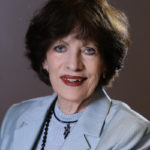PUBLISHED MAY/JUNE 2019
by Sylvia Cary,
LMFT --
 Sylvia Cary
Sylvia CaryWriting a book takes about 10 percent of the effort; publishing takes about 15 percent; and marketing takes about 75 percent." -- Author Unknown
Getting a book published is a big job, but the biggest part of it isn't the writing or even the publishing; it's the book marketing. For many authors, book marketing is a chore and a drag. It can also be scary. Put myself out there on social media? No way! Have a Facebook business page? Express an opinion on LinkedIn? Tweet on Twitter? Participate in an online chat? You've got to be kidding.
But book marketing is a fact of the writing life, right? It's an absolute necessity, right? There's no way around it, right? So you might as well grin and bear it and face it like a grownup, right? Well, yes and no. Yes, book marketing is a must if the main reason you are publishing is to make a name for yourself and make money. But it's not if you are writing for other reasons, such as sharing your expertise with audiences, colleagues, clients, or putting together a book of your poems or photos as a gift for friends.
One of the beauties of self-publishing in today's digital world is that you can pick any reason you want to publish a book, and knowing your reason will take the marketing pressure off your shoulders. For your particular book, marketing may not be what you need. In that case, you don't have to bother with it.
What Does Writing for Your Inner Circle Mean?
Your inner circle consists of the people you deal with every day, not the world at large or the general public or book buyers, but your personal world: friends and family, professional colleagues, business associates, your clients, your patients, your neighbors, your local community, people in organizations you belong to, etc. Your inner circle may consist of just a handful of people you feel free to boast in front of. Send them an email: "Hey, I just put my book up on Amazon. Here's the link."
Thinking in terms of writing for your inner circle rather than writing for everybody can open up a whole new world of possibilities for authors who have been dragging their feet for years, fretting about the daunting task of marketing it once it's written. Even if you're a mental health professional, your book doesn't have to be "important." You can write it, put it up for sale on Amazon (somebody will surely find it), buy a dozen copies for your personal use (author discount), or gift it to people.
A Few Inner Circle Book Ideas
A nonfiction book on your specialty as a therapist or, better yet, some niche aspect of the topic that hasn't been written about yet so it's fresh meat. You can sell it when you teach classes, gives talks, host workshops, or use with clients.
A personal recovery memoir you can use in your work as a therapist helping others recovering from the same thing.
A book based on a hobby or collection. Perhaps for years you've collected dolls from around the world or from different periods of history. You could write about the dolls, and include photos or brief historical write-ups to go with them.
Family research: history of the family, family trees, photos, maps, documents, wedding invitations, birth announcements, or obits. Not the kind of book non-family members would buy, but family members will probably love it and gladly order it from Amazon.
Mystery stories. An ex-cop-turned-fiction-writer wrote a book of short stories about cops and self-published it. While he emailed some of his former cop buddies, he made additional sales because some people love cop fiction and do internet searches to find new works-and his book pops up. No real marketing involved.
Many professions (mental health, law, show business, music, medicine, science, art, etc.) are divided up into many subspecialties, any one of which could make a book. While traditional marketing is best for such books, some will simply sell themselves when people do internet searches on specific topics.
Children's books. An Asian woman who now lives in the United States wrote a book for her daughter, a collection of the children's stories she grew up with. At the time she published it, she said she couldn't find any other Asian stories for kids. Someone now searching, as she did, for "Asian children's stories" just might find her book.
Keywords: The Key to Passive Book Marketing
A secret to having your non-marketed book discovered via an internet search is to use good keywords (
kdp.com allows you seven of them) when you upload your book to Amazon. There are numerous articles
online and in
previous issues of this magazine about how to select these keywords. For authors who decide not to do much marketing, it's especially important to study the keyword advice.
Don't hold off on getting your book published because you are nervous about the marketing. If you are clear about your personal publishing goals, which may not be the same as the author next door, then you can relax. The pressure is off and, ironically, you might even sell books without meaning to.
Find the beauty of one of your unique, personal, or work-related inner circles, write about it, then publish using good keywords, along with a few other low-key marketing tools (the "set it and forget it" kind), and call it a day. People will surely find you. Maybe not millions, but some.
Sylvia Cary, LMFT, is the author of THE THERAPIST WRITER: Helping Mental Health Professionals Get Published
(2019 version just published on Amazon and Kindle). She lives in Sherman Oaks, California, and does publishing coaching through Cary Editorial & Book Consulting (caryeditorial.com). You can reach her at sylvia@sylviacary.com.